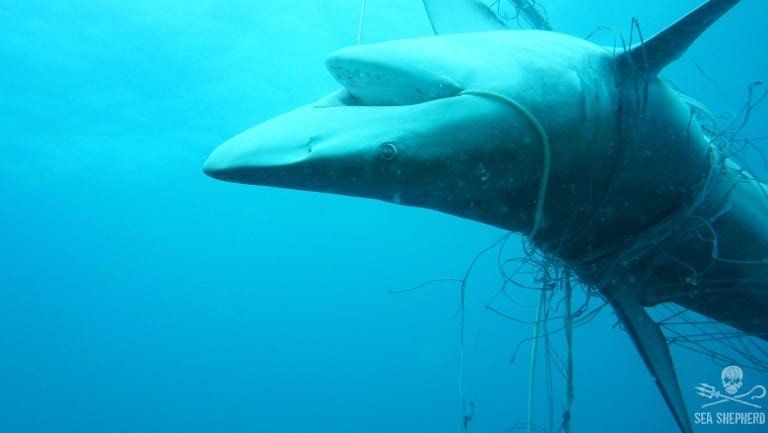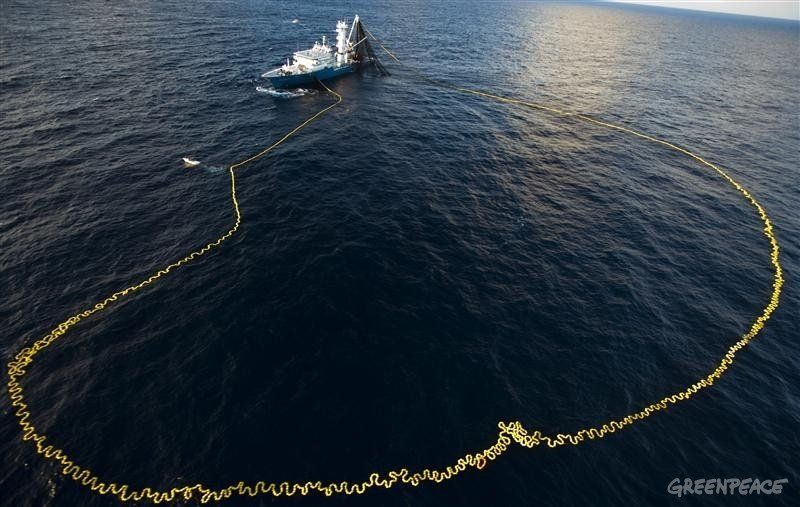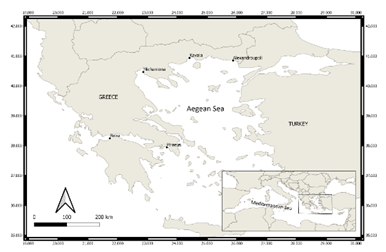Greek Sea-turtles and Sharks as a Case Study for Megafaunal Bycatch.
As humanity turns to the sea for research, recreation, transportation, and resource exploitation, those that call the ocean home are routinely subjected to a variety of anthropogenic interactions. It goes without saying that negative activities can have a significant impact on vulnerable species, after all I am sure none of us fancy being harassed on the daily or living in a busy shipping lane. This notion particularly applies to marine megafauna, typically characterised by relatively complex life history traits. Such traits include fewer offspring being produced (low fecundity), late sexual maturity, and greater resource investment into advanced physiology or behaviours.
Due to these attributes, one of the most detrimental impacts on marine megafauna is incidental capture. Otherwise known as bycatch, incidental capture often refers to indiscriminate methods of fishing that inevitably result in the capture of non-target species or individuals that are usually prohibited or just generally uneconomical to land (i.e. undersized or undesired gender). Though large amounts of bycatch is ‘released’, the majority of it is dead or injured, potentially to the point of being unable to reproduce. This morbidity and mortality is particularly notable within marine megafauna such as air breathing marine vertebrates (ABMV’s) or cartilaginous fish (chondrichthyans). Surprisingly, as the name suggests, ABMV’s includes whales, seals, birds, and sea turtles which are incapable of breathing when held underwater within fishing gear.
Restraint and respiration are also an issue for chondrichthyans such as sharks (figure 1), which often have to keep moving in order to pass oxygenated water across the gills (ram ventilation) unless capable of buccal or gular pumping (contraction of the mouth and throat respectively to draw water across the gills). Regardless, if individuals are removed from a population before having an opportunity to reproduce, there can be catastrophic, far reaching consequences for these often-transient species, the interconnected marine ecosystems they inhabit, and the economies dependent on them.The incidental capture of megafauna is by no means a localised issue, occurring in all waters including those of Ireland for decades (i.e. Rogan and Mackey, 2007). However, despite being a global issue, bycatch is arguably yet to be effectively investigated or managed. Whilst megafaunal bycatch has been studied and some preventative measures have been explored (Senko et al. , 2014.) there will always be difficulties assessing, enforcing, and implementing mitigation globally. This can be largely attributed to inconsistent monitoring, depauperate assessments, bias, limitations, and knowledge gaps concerning megafauna as bycatch. Just as with conservation, large charismatic animals such as whales, birds and seals also garner the greatest amount of attention within the context of bycatch, as opposed to most reptiles and sharks. Even then certain species are focussed on and studied more than others due to prevalence, popularity, or ease of identification, subsequently skewing available data. Furthermore, a significant number of studies are rarely all-encompassing, focussing on either a restricted location, a limited number of specific taxa (i.e. just marine mammals or just Mediterranean monk seals, Monachus monachus ), or specific types of fishing equipment or fisheries (i.e. deep sea fisheries, net based methods of capture, or specifically purse seines – figure 2).
Touloupaki et al. (2020) utilised a bottom-up, multi-taxa and multi-gear approach, incorporating local experts to qualitatively investigate and establish a baseline for sharks and sea turtles as bycatch within Greek waters. This was largely a result of Greek fisheries utilising a variety of techniques to target a large number of species across a broad spectrum of important habitats, all within a biodiversity hotspot for marine megafauna. This includes a recorded 36 species of shark and 3 species of sea turtle, which despite locally identified reproductive sites coupled with the conservation status of the majority of these species, information regarding bycatch rates and interactions with Greek fisheries is often lacking, unreliable, and otherwise biased. This is particularly significant in Greece, as not only is marine megafauna detrimentally impacted, but fishery and stakeholder awareness of such conservation issues is vitally important to the sustainability of the large amount of fishery dependent communities present.
In situ information and provisioned questionnaires were obtained from professional fishermen, port authorities and related ministry departments within five crucial Greek ports, accounting for 65% of the countries fishing fleet. Data identified that fishermen commonly caught at least one species of megafauna (dolphins, monk seals, sea turtles, chondrichthyans or sea birds), with 65% of fishermen stating they had incidentally caught sea turtles and sharks within the last year. ‘Netters’ (i.e. gill nets and trammel nets) and bottom trawlers reportedly interacted with sea turtles primarily between April and August, whilst sharks most frequently appeared as bycatch within all Greek fisheries between March and August. This is most likely due to the ecological diversity present within the 36 recorded species. Despite their prevalence and the damage they regularly cause to fishing gear, fishermen were reportedly only aware of sea turtle conservation and handling techniques, typically selling, consuming, or disposing of sharks. Worryingly, 90.1% of experienced fishermen also reported both taxa being caught less frequently than previously, suggesting potential population declines. Additionally, administration authority data revealed that whilst employees were familiar with protected species, local biodiversity, sustainability, and legislation, most were not aware of bycatch incidents, indicating a lack of mutual communication among professionals and stakeholders.
Whilst ‘hard numbers’ may be desirable for more in-depth, comparative study, this paper was a significant step in the right direction and further highlighted local issues surrounding bycatch (i.e. inadequate reporting and monitoring). Utilising local knowledge, governmental figures and research data combined to focus on a wide variety of species across fishery types will be integral to the creation of a comprehensive dataset for use guiding conservation, mitigation, and even legislation.References:
Rogan, E., and Mackey, M. (2007). Megafauna bycatch in drift nets for albacore tuna ( Thunnus alalunga ) in the NE Atlantic. Fisheries Research. 86 (1): 6 – 14.
Senko, J., White, E.R., Heppell, S.S., and Gerber, L.R. (2014). Comparing bycatch mitigation strategies for vulnerable marine megafauna. Animal Conservation. 17 (1): 5 – 18.
Toulopki, E., Doumpas, N., Bouziotis, D., Rae, V., Moutopoulos, D.K., and Giovos, I. (2020). Sea Turtles and sharks bycatch in Greece: Fishers’ and stakeholders’ knowledge. Journal of the Black Sea/Mediterranean Environment. 26 (1): 59 – 83.
SHARE THIS ARTICLE
















